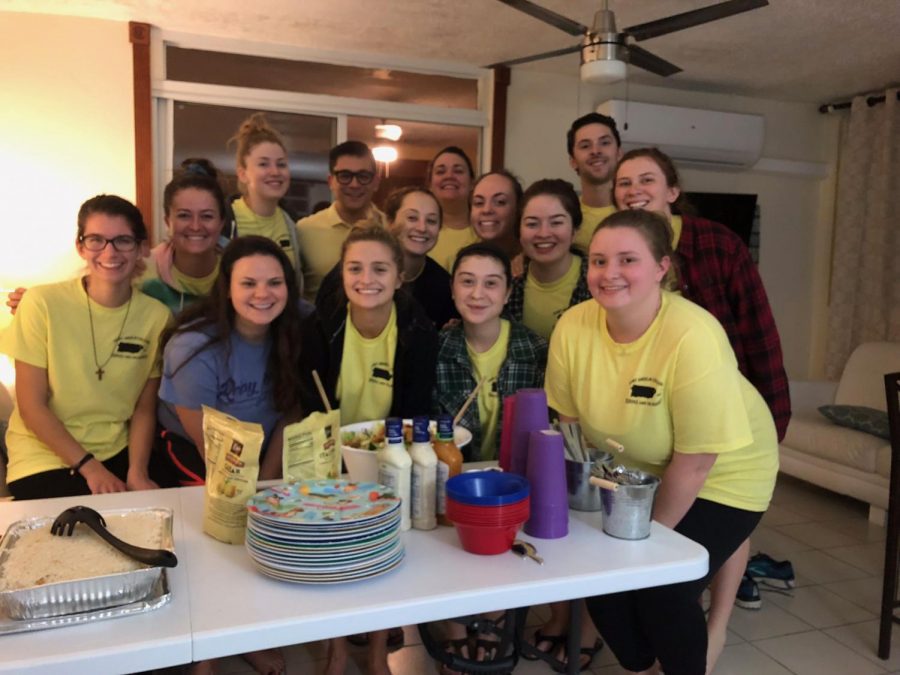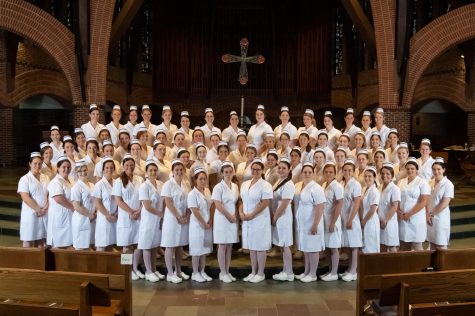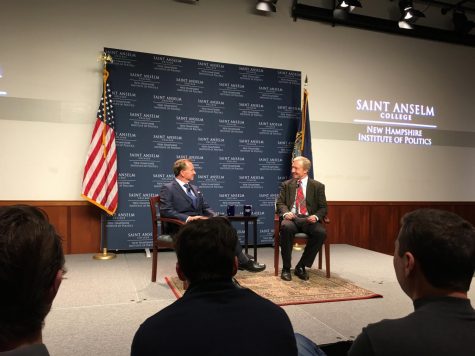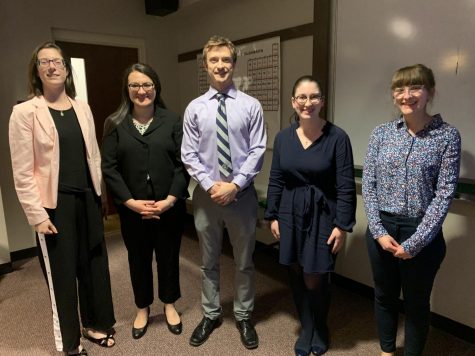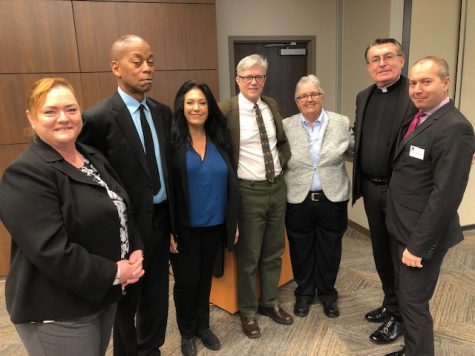Campus Ministry sends 158 on Winter Break Alternative trips
One of the thirteen winter break alternative groups volunteered in Fajardo, Puerto Rico, pictured above.
February 4, 2019
Over winter break, 158 Saint Anselm students and staff participated in the Campus Ministry’s Winter Break Alternative program. These participants journeyed to 13 locations including Austin, Texas; Talcott, West Virginia; Camden, New Jersey; Baltimore, Maryland; Washington, D.C.; Salem, West Virginia; Atlanta, Georgia; Manchester, New Hampshire; New Orleans, Louisiana; Winston-Salem, North Carolina; Philadelphia, Pennsylvania; Phoenix, Arizona; and Fajando, Puerto Rico.
The trips are part of the Service and Solidarity Missions program, which is now in its 29th year at the college. The program allows students the opportunity to serve others in both domestic and international locations.
In an email to the school, Director of Campus Ministry, Susan Gabert, wrote that “throughout their week of service, prayer, and reflection students step beyond their comfort zone and ask themselves meaningful questions about who they want to be in the world.”
The students on the Pennsylvania trip had the opportunity to work specifically in the Germantown borough of Philadelphia, which is the poorest of the ten most populated United States cities. The group served in a variety of ways, such as working with adults with mental disabilities, children in an after-school program, in soup kitchens, and at transitional homes for formerly incarcerated adults.
One of the Philadelphia trip’s leaders, Eli Fish, ‘20, reflected on his experiences at the Saint Vincent de Paul house, which was a former convent converted to a student-center for service trips.
Fish said, “One of the nights, a few men that were staying at transitional home not far from us came over for dinner. One of them had been homeless since he was 14 and I assumed he was in his mid-50s. What hit me the most was just how thankful these two men were to have joined us for dinner. They praised God, they listened to us speak, and they conversed with us while we enjoyed a warm meal together. That moment made me realize that sometimes I really take things for granted, because I am so lucky to have belonged to a family that has provided me with love and support my entire life. Others haven’t been as fortunate, with minimal to no guidance at all, but yet they remain appreciative and thankful for all that they do have.”
Fish also shared that this was the first time he was a trip leader, rather than just a participant. Despite his initial stress about being a trip leader, he soon realized that “Sue [Gabert] and Riley [Duggan] had us very well prepared with meetings and training throughout the semester leading up to our trips.”
Katherine King, ‘21, was a part of the Camden, New Jersey trip, where she and her fellow participants served impoverished urban communities through Romero’s Urban Challenge and the Romero Center Ministries. On one occasion, King’s group was asked to clean out a shed where a homeless man named Horace had been living.
On this experience, King said, “He hadn’t been there for several weeks, from what we could gather, but it was an emotionally taxing experience to sift through piles of this man’s abandoned belongings, including prescription medications, clothes, newspapers, lottery tickets, old birthday cards and DVDs. For the rest of our time there, we often would mention Horace and wonder where we might have ended up, praying that he found happiness. Even though we never met Horace, the idea of him was one that really stuck with all of us who worked in the shed that day.”
King shared that the trip had been a learning experience for her: “I come from a small and rural town in Maine where these burdens don’t exist as prevalent, so I had never really been exposed to anything quite like Camden. It really opened my eyes up to some of the big social problems and divide that exists in America that I was pretty naive to before.”
This winter, the Service and Solidarity program sent one group outside of the continental United States to Puerto Rico. The group participated in both direct and indirect service in Fajardo, including working with a local woman who was affected by Hurricane Maria, cleaning up a beach trail, and planting trees in areas that were damaged by the hurricane.
Kait Brine, ‘20, a Puerto Rico trip participant, said “to see how much value the people of Puerto Rico place in their environment…was incredibly admirable and definitely left our group with the inspiration to bring the passion for environmental justice back with us to the continental United States.”
Brine also remarked about the people she met and learned from: “In the continental United States, Puerto Rico is often pushed to the side…being able to hear stories of the incredible people that we learn so little about was something I am very grateful for.”
Fish urges other students to apply for Service and Solidarity trips: “they really do provide eye-opening experiences to communities that some of us have probably never seen first hand. Whenever I have asked participants if they’ll apply again, they unhesitatingly have said yes, but also that ‘they wish they had been involved earlier.’”


